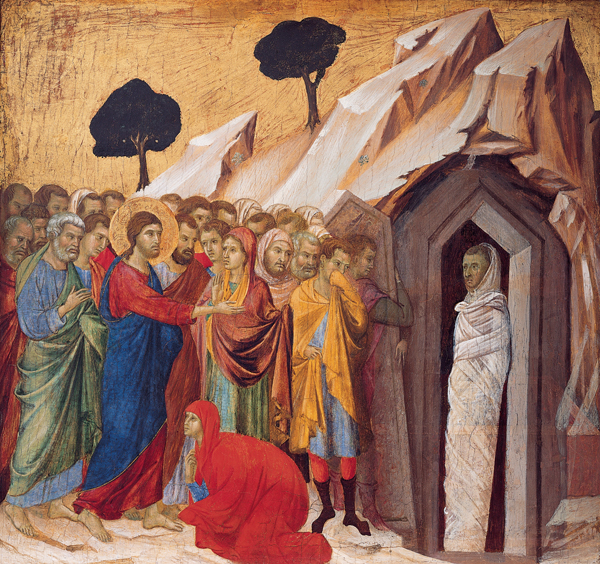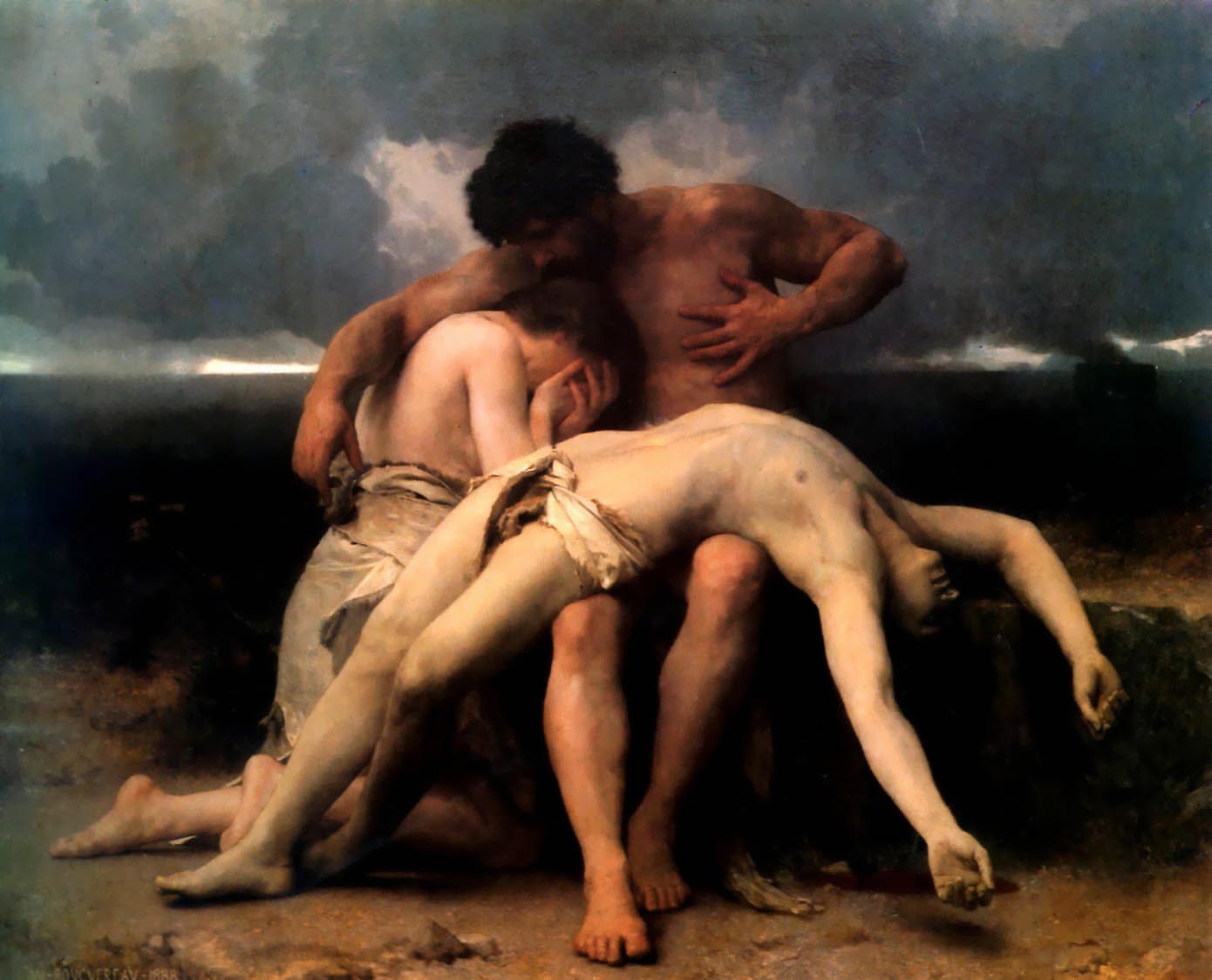John 11
Lord, why
were you not here?
Had you been here,
my brother would not be dead.
Did you not love him
as your dear friend?
Lord, why
were you not here?
Had you been here,
you could have healed him.
Did you not heal the blind
and help the lame?
Did you not heal
through one touch,
through one word,
from a distance?
Lord, why
did you not help us
this time?
The close friends you love
and who deeply love you -
did it mean nothing to you?
Lord, why?
But even now
I believe.
I believe
although I do not see.
I believe
although I don't receive
what I expected to.
I believe
because what counts
is not what you can give to me,
or what I can get out of you -
all I need is YOU.
You are
the resurrection and the life.
You are
more than the means to my own ends.
You are
more than the provider of all I desire.
You are
the Messiah,
the Son of God.
Yes, even now
I believe.
_____________________________________________________________
[18. September 2015]
To be honest: this came into existence within something like 2-5
minutes, as part of my sermon preparation for this coming Sunday. ^^; I
will be preaching about John 11 (in particular Martha's meeting with
Jesus), and it really helps me structure my thoughts to put them in poem
form first. So here's the general gist of my (as yet
not-quite-existent-yet) sermon.
Jesus, known far and wide as a
miracle healer, could have healed Lazarus. He could even have done so
from a distance (as he had done in two other cases - the Centurion's
slave and the Kanaanite woman's possessed daughter). But he did not.
When the news of Lazarus' sickness reached him, Jesus even
hung
around longer where he was (v.6)!! How might Mary and Martha
have felt about that?! Was he forsaking them? I tried to reflect that a
bit here.
I find the conversation between Martha and Jesus really
powerful. Martha comes straight out with the reproach: "If you had been
here, my brother would not have died." (v.21) But then she adds this
bit: "But even now..." She still believes that God hears prayer. I don't
necessarily read an expectation of Lazarus' resurrection into that.
What she's saying is: even though she did not get what she hoped for,
she has not stopped believing in God, she has not stopped trusting and
loving Jesus. And even if Lazarus only comes back to life at the end of
time (v.24), she still holds on to Jesus, and it is enough for her.
Then
Jesus says: "I am the resurrection and the life." The phrase I AM is
very important in the Gospel of John. Again and again, Jesus makes "I
am" statements. I am the door; I am the bread of life; I am the way, the
truth and the life. "I AM" - what this shows me is that more important
than what Jesus does for us, more important than the things we get from
Jesus, is
who He is, Himself, His person. In the
Gospel of John, the
person of Jesus is very
important. Jesus is the one who shows us God the Father. As the Word who
was with God before anything else was, He knows the Father perfectly.
By knowing Jesus, we know the Father.
Jesus does not just "give"
us what we need. He Himself IS what we need. As the one who hears and
answers prayer, He is
more than a power that can
fulfill our wishes and demands. I learnt this especially the last time I
was back home in Taiwan and saw the way the idols are worshipped there.
The natural human way to go about prayer is to bring demands to a god
and expect the god to "deliver". In Taiwan, if a god does not deliver,
he/she gets "starved" (no sacrifices) or sometimes even beaten or thrown
away. Because the god is not "doing his job" if he does not do what you asked him to (especially since the sacrifice is already something like an
"advance payment" and the god owes you). With Jesus, it is not like
that. Jesus does not have to "deliver". He is our Lord and King, not our "service provider"; it's
not my will and my wishes that count, but His. And sometimes His plan
may be completely different. But because we know God's character and
know that He is good and faithful, we can trust Him with whatever He
gives us - even if it's not what we really wanted or expected (as in
Martha's case).
Martha makes a great big confession at the end of
her conversation with Jesus (v.27). She actually says
exactly what Peter said where he confessed that Jesus
is the Son of God (literally the same thing)! Martha has understood.
She has recognised who Jesus is - and that in the midst of mourning her
brother, in the midst of not really understanding why Jesus was not
around when she wanted Him to be, and
before she even
knows that Jesus is going to raise Lazarus back to life. She believes
in who Jesus IS, before He has done anything for her.
- Do we want Jesus for the benefits He brings us, or do we want Him for who He is?
- Do we love a significant other for the benefts he/she brings us, or do we love him/her for who he/she is?
- Do we want to be loved for the benefits we bring others, or for who we are?
There's another poem about Martha right
here.
[Es gibt eine deutsche Übersetzung dieses Gedichts, coming soon...]
Picture by Duccio di Buoninsegna
_-_WGA2519.jpg) And they were both naked, the man and his wife, and were not ashamed. (Genesis 2:25)
And they were both naked, the man and his wife, and were not ashamed. (Genesis 2:25)


